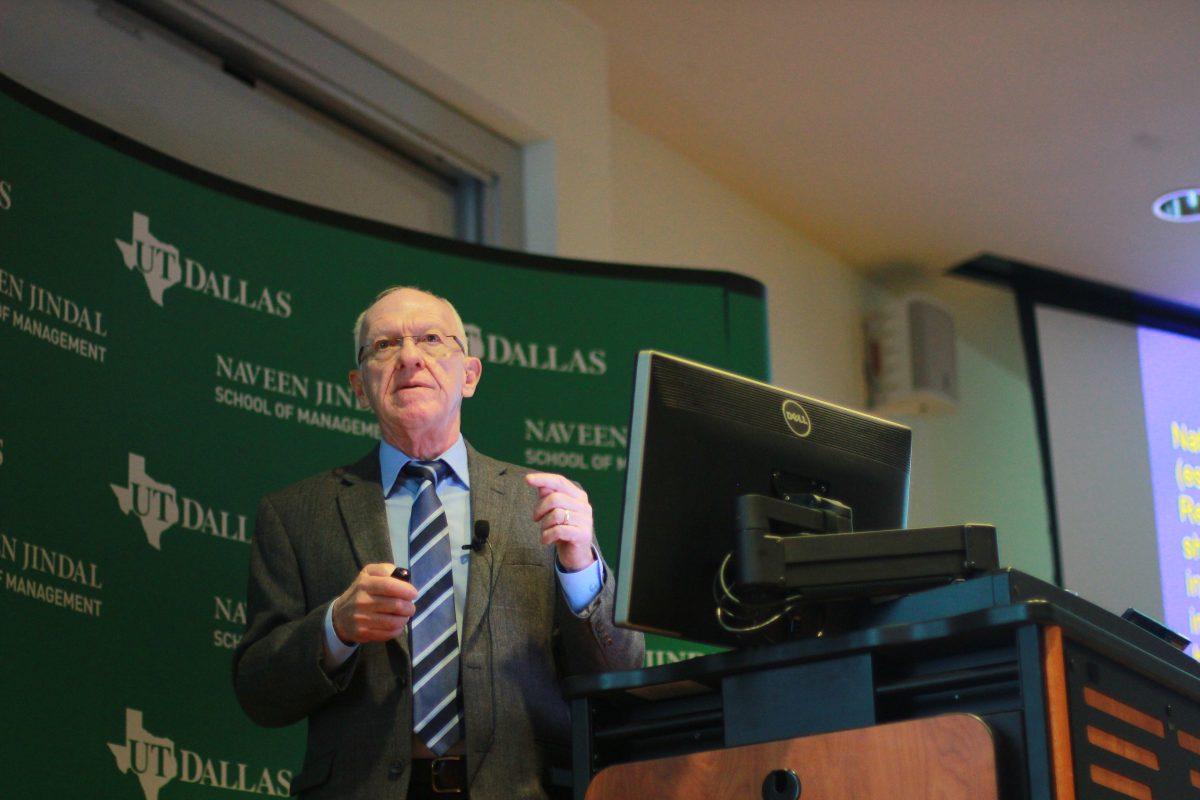Wayne Cornelius is a distinguished professor emeritus of political science at UC San Diego. He is an expert on comparative immigration policy. His research has been frequently featured in news sources such as The New York Times, NPR and 60 Minutes. In 2012, the president of Mexico awarded him the Order of the Aztec Eagle, Mexico’s highest decoration for foreign citizens, to recognize his lifetime of contributions to immigration research and bettering U.S.-Mexico relations.
The Mercury had a chance to sit down and talk with Cornelius about what he predicts for immigration during the Trump administration.
What has your research indicated about illegal crossings between the United States and Mexico?
The research that my research field work teams has done as well as government statistics on apprehensions all indicate that there has been a severe decline in new migration from Mexico since 2009, during the Great Recession. We have evidence from a variety of resources that suggest that new migration has largely dried up. There’s still a trickle and there will always be, but the great wave of undocumented migration that we experienced in the 1990s and the 2000s until the Great Recession, that wave is now over.
Is that trend indicative of the efficacy of border fortification efforts?
No it is not. The official story is that it is due to the tens of millions of dollars that we have invested in border fortification that we have invested since 1993. But there’s really no evidence to support that. The focus of our most recent survey was that why so many people were opting to stay home in Mexico. And we identified five or six key factors to explain that behavior and the decision to stay home.
One was a persisting perception that jobs were still hard to come by in the United States. Second factor is the cost of migration to the United States, which is now between $3,000 to $6,000 paid to the smugglers, and nine out of 10 people hire smugglers to assist them. That is a heavy financial burden that is borne primarily by relatives based in the United States that loan them money to finance the trip.
Do those facts matter to the current administration?
I know the Trump administration is interested in listening to evidence on this or many other topics. They have a base, a very broad and deep base of people who, for one reason or another, do believe investing more money in border fortification is a good idea and it is necessary among other things to prevent terrorist attacks which it was never designed to do. And he’s obviously pandering to that base and I think what he’s likely to be able to do is something that is more symbolic than is meaningful.
So will the plan to invest in his border fortification wall have any significant effect on cross border apprehensions or traffic?
Highly unlikely. We already have a border wall. And people and smugglers have always found a way to go over it, under it and around it. And they’ll continue to do the same thing with any new barrier. There will never be a continuous physical barrier between the United States and Mexico regardless of what kind it is or how high it is. And our research shows that of the people that go to the border, the undocumented people that go to the border, nine out of 10 eventually get in.
The fortification has proven it has very low efficacy as a tool of immigration control and it has all sorts of unintended consequences. Increasing fatalities at the border, enriching the smuggling industry, greatly increasing the rate of permanent settlement by ending circular migration. So it has all these unintended consequences and then it hasn’t served its original purpose.
How do you go about convincing the other side?
Trump will do what Trump always does. He changes the subject. And if the base is excited about illegal immigration it is because Trump made it his signature issue and used it to rile them up. As for the base, even parts of the base will begin to have second thoughts, if Trump is able to carry out parts of his mass deportation campaign and they see undocumented families being torn apart and they will see how hard it is to find child care workers and housecleaners and others who are directly impacted by a systematic large scale deportation campaign. The personal costs of that may come home to roost. And even parts of his base may be less enthusiastic about the administration’s approach.





